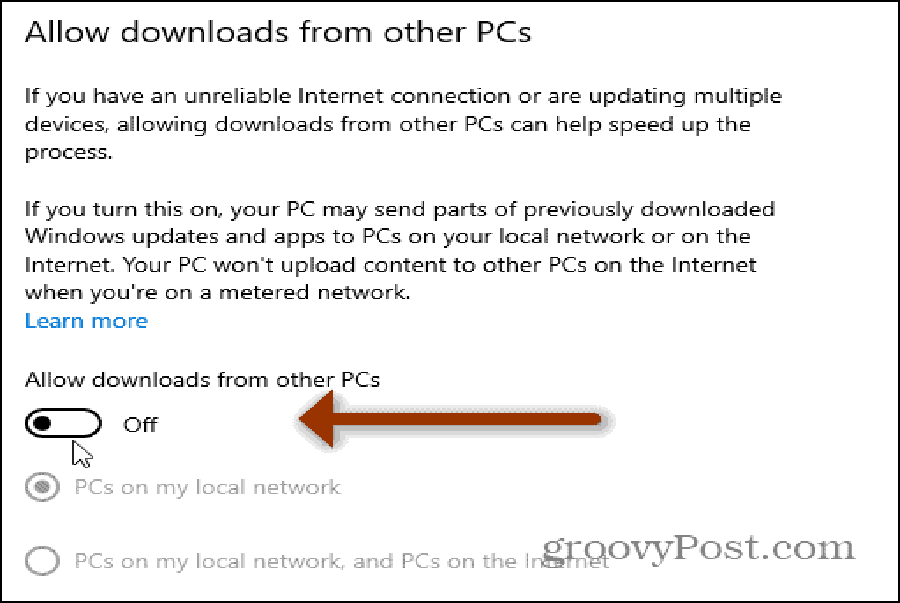Image Gallery (1 Images)
On Android 10 and 11, Google put about all privacy controls in one one placement under Settings – > Privacy .
If you ‘re on Android 10 or 11 already, you can head to your organization settings and look for the Privacy incision to tweak which personal data you ‘re sharing with Google. You ‘ll find everything this article talks about regarding your Google Account and Android settings in there. For everyone else, these options are scattered all over your earphone, but do n’t worry : we ‘re here to help you find them all, and we will besides share which advantages and disadvantages come with changing them .
ANDROIDPOLICE VIDEO OF THE DAY
Disable Location History and Tracking
You may have turned on Location History when you inaugural got your call, a feature that allows Google to store a history of all of the places you ‘ve visited, accessible in Google Maps under Your Timeline. While Google says it protects this data and does n’t parcel it with third parties, you might still be uncomfortable knowing the company has a complete cut criminal record of your every step ( while carrying your call ). It ‘s possible to turn off placement tracking wholly, but to do then thoroughly, you need to flip quite a few switches. That ‘s why we ‘ve published a whole other article on the consequence. Check it out here .
Image Gallery (1 Images)
Keep in heed that turning off Location History comes with some minor disadvantages : Your timeline in Google Maps wo n’t update anymore, your Google Assistant will lose some capabilities, and your automatic commute notifications will stop appear .
Android 10 and higher: Prevent apps from tracking your location in the background
Android 10 improved some of Android ‘s notoriously bad privacy practices of old. It prevents both third-party and first-party apps from polling your placement in the background, limiting their placement access to entirely while in use .
Image Gallery (2 Images)
To limit which apps have access to your placement, head to Settings – > apps & notifications – > Permissions coach – > Location. There, you ‘ll find a tilt of all apps installed on your earphone. You can individually set location tracking limits for each by choosing a tier : Allowed all the time, allowed merely while in function, or denied. While most apps do n’t ever need your location, some of them offer add benefits when they have access, specially those for navigation .
On older Android versions, you ‘ll have to choose between always allowing and constantly forbidding localization access. You should cautiously assess which apps you trust and check what you very gain from sharing your localization with an application. In a hotel booking app, for example, you probably wo n’t search for accommodations in your current vicinity and most likely wo n’t need to give it access to your location. other apps allow you to set your address manually, besides, like weather apps or food rescue services. They offer the same functionality with the minor inconvenience of typing in your address .
Opt out of Google’s personalizations
To hinder Google from following you around the network, forefront to your Google Account ‘s activity controls, accessible under myaccount.google.com and Settings – > Google – > Manage your Google Account – > Manage your data & personalization .
In there, you can turn off Web & App Activity, but note that Google results might become a little less accurate when you do this. You can besides stop Google from collecting data on your Google Assistant use, but that hard limits its utility. For exercise, the Assistant wo n’t respond to personal queries like “ What ‘s on my calendar ? ” or “ learn my messages ” on any device, including Home speakers — Google sure wants you to supply your data to continue using the Assistant. If you ‘re adamant about protecting your privacy, you should probably stop using Google Home speakers and the Assistant altogether anyhow .
Image Gallery (2 Images)
You can proceed by turning off YouTube History and, more importantly, Ad personalization. When you do that, Google will stop pushing individualized advertisements to you and will alternatively show you more generic, less relevant contented. According to Google, it will entirely be based on “ cosmopolitan factors, like the subject of what you ‘re looking at, the time of day, or your general localization. ”
You ‘ll besides need to head to myactivity.google.com to delete previously stored information. On that web site, open the ground beef menu by tapping the three bars in the acme forget recess and choose “ Delete activeness by … ” then you can select which bodily process you ‘d like to remove .
On Android 10 and higher, all of these settings have been moved to one location, easily accessible in Settings – > Privacy. While you ‘re there, be certain to turn off the Autofill servicing from Google and Usage & Diagnostics, besides .
Turn off backups
To turn off backups to Google ‘s servers, head to Settings – > System – > Backup. There, you can toggle off Back up to Google Drive .
Image Gallery (2 Images)
When you do this, none of your cherished data like your contacts ‘ numbers or SMS chats will be automatically restored when you lose or break your earphone, so be cautious about saving details somewhere else. You ‘ll besides need to manually sign back into apps you ‘ve used on your erstwhile phone, you ‘ll lose customs device settings including Wi-Fi passwords, and your photos and videos wo n’t be backed up. Assess carefully whether having some peace of mind regarding this data is worth a privacy tradeoff or not .
You can consider switching to a privately hosted server using ownCloud or similar open source solutions to sync your files and backup your data rather .
Use third-party software when possible
If you do n’t want to get tracked by Google, consider using third-party software over Google ‘s pre-installed apps. There are tons of e-mail providers, mottle storage solutions, note-taking apps, and seafaring systems out there that do n’t rely on Google software, like Microsoft Outlook, Dropbox, Bundled or Evernote, and here Maps. If you want to go all in on privacy, you should flush consider going for open-source replacements only. That ‘s no guarantee that your data is safe, but code is largely peer-controlled and much not in the hands of one individual company. We created a series of articles highlighting open-source alternatives for common Google apps .
Some Google apps can flush be safely deactivated by tapping and holding their icons in the app draftsman or homescreen, tapping the one push button, and choosing disable. Be careful with this, though, as some apps like Google Search are necessity to keep your call up and running. Something like Play Music or YouTube should be safe to disable, though .
Use a browser other than Chrome
Image Gallery (3 Images)
Left: Mozilla Firefox. Middle: Microsoft Edge. Right: Vivaldi Beta .
If you ‘re concerned about Google Chrome ‘s tracking mechanism, consider switching to another browser that keeps your privacy integral. I ‘d argue Firefox and Firefox Focus are the best choices since they rely on a browser engine not created by Google. many other third-party browsers use Google Chrome ‘s rendering locomotive, which is not good for the health of the network. If you ‘re not satisfied with Firefox, you might still want to try Microsoft Edge, Samsung Internet, or Vivaldi .
You can make any of these your nonpayment browser by choosing Always open with this app when you tap a connect in another application. If you use the Google app, you ‘ll notice that it distillery opens links in a custom Chrome tab. To make the search engine use your choose third-party browser, head to the More bottom pill – > Settings – > General and turn off Open web pages in the app .
… or at least make Chrome less hungry for your data
If you ‘d like to stay with Chrome rather, there are distillery things you can do to enhance your privacy. head to the browser ‘s settings ( three-dot menu – > Settings – > Search locomotive ) and change the research engine to another supplier — among the ones listed, DuckDuckGo.com is your best option concerning privacy. Its results often are n’t as spot on, though — there ‘s a reason why Google is king of research .
Another thing you can do in Settings is sign out of your Google account and turn off synchronize, though naturally, you ‘ll lose out on cross-platform synchronization that way. Disabling Google ‘s native password instrument and switching to a third-party password director ( find our survival here ) will increase not merely your privacy but besides your security. additionally, consider deactivating Google ‘s payment methods and savoir-faire autofill options .
To find more advance options, scroll down in Chrome ‘s settings. Under Privacy, turn off Access payment methods and preload pages for quicker crop and search. You can besides remove your Chrome natural process from Digital Wellbeing and turn on “ Do not Track, ” though the latter is a little mislead : That good sends out a plea to websites telling them you do n’t want to be tracked, but nothing forces the operators to comply .
In Site settings, tap Cookies and enable Block third-party cookies. That way, you can stop some third-party tracking cookies from websites you ‘ve never even opened from following you around the web. Some features like automatic sign-ins to the gloss platform Disqus on Android Police and early sites could break along the way, though — you ‘ll have to manually allow Disqus cookies to make comments function seamlessly again .
You should besides turn off Lite Mode. While it does save some of your cute fluid data, it achieves that by sending unencrypted HTTP web site queries through Google ‘s servers ( encrypted HTTPS websites are n’t affected by Lite Mode in the first plaza ) .
Don’t trust Incognito mode
contrary to democratic impression, any browser ‘s incognito or private mode only goes therefore far when you want to stay low-profile on-line. Your ISP and public Wi-Fi providers might hush be able to see which websites you visit. The lapp is true for some ad trackers that rely on a singular combination of your hardware, software, and IP address rather than cookies to track you across both incognito and even mode. If you truly desire to stay anonymous, consider trying the Firefox-based Tor Browser or a trustworthy VPN like ProtonVPN. Both route your code queries through extra servers, obscuring your identity and localization from other Wi-Fi users and your ISP .
Set up 2-factor protection for your accounts
While 2-factor authentication ( 2FA ) wo n’t keep Google from getting your data, it might prevent hackers from breaking into your explanation, which would be worse — they credibly wo n’t adhere to any privacy laws in contrast to the business. That ‘s why you should activate 2FA for your Google history and any on-line report when possible .
For Google, oral sex to your account ‘s security system settings, accessible on the web proper here. Look for the 2-Step Verification entry and activate it. You ‘ll then have to enter a moment piece of data in summation to your password whenever you log in to a new device. You can choose believe phones, appraiser apps, phone numbers, and accompaniment codes to do that .
many early services, like Microsoft, Facebook, Twitter, Reddit, password managers, and Slack besides have 2FA options. They ‘re available in these avail ‘s security settings .
We have a roundup of great 2FA apps hera .
Good practices
other than these kill switches, there are some smaller things you can do to contribution less data with Google and third-party apps on your call :
- Only turn on location when you need it. That will save you a little precious battery life, too. On most Android versions, you can create a shortcut for that in your quick settings by swiping down the notification panel twice and tapping the pencil button (that’s what it looks like on Pixel phones — the workflow differs across manufacturers).
- Check which of your apps are device admins (Settings -> Apps & notifications -> Advanced -> Special app access -> Device admin apps). Find My Device and Google Pay are among those that usually get this permission by default, but if you don’t use the payments app, you can deactivate it.
- Check the permissions you’ve granted your apps under Settings -> Apps & notifications -> Advanced -> Permission manager and deactivate those you don’t need. And don’t worry, when an app absolutely needs one to work properly, it’ll nag you to activate it again, so it’s pretty foolproof.
- Avoid using your Google account to log into third-party apps. Create individual new accounts instead, complete with their own unique passwords.
- Last but not least, consider doing a security checkup. Google will walk you through unused logins and third-party apps with access to your account and ask you whether you still need them. That won’t help you keep data away from Google, but at least your information isn’t spread even further.
Custom ROM
One surefire means to avoid being tracked by Google altogether is installing a custom ROM without any Google apps on it. Despite Android ‘s open-source nature, that ‘s difficult to pull off as our own Myriam Joire had to find out. many apps trust on Google Play Services, which provide essentials like advertise notifications and placement data. What you can do is use a ROM with microG, an open-source refilling for many functions provided by Play Services .
however, just because custom-made ROMs are open reservoir does n’t mean that person went looking for malicious code in the generator. You should stay away from obscure forks and you should absolutely preface any custom ROM installation with a long ton of research. Google promises not to sell your data to third parties and would face dangerous consequences if it did because so many people, businesses, and governments trust on its services. An individual ROM developer distributing spare software to a few people is much harder to keep in check and unfortunately does n’t have the same resources as Google to provide top-level security .
An luminary exception from this rule is /e/, a ROM backed by a non-profit administration that sells de-googled phones and helps people install the ROM on their own devices .
All in all, it ‘s challenging to shut off tracking raw in this sidereal day and senesce. If you ‘re truly paranoid, you probably should n’t be using a smartphone in the first base place. however, even when you want to profit from all the advantages internet-connected engineering has brought us, you can make some choices that help you become less diaphanous on the internet, and that ‘s at least something .
How to control Chromecast book in Android 12
There ‘s a way, but you ‘re not going to like it
Read Next
share
pinch
e-mail
About The Author

Manuel Vonau
( 1550 Articles Published )
Manuel is a technical school fancier and Android fan based in Berlin. When he ‘s not writing articles for Android Police, he ‘s probably out and about as a videographer .
More
From Manuel Vonau










